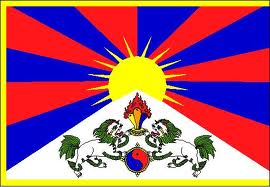 Children as young as six have been detained in difficult conditions without charges or access to their families and been punished with electric shocks and other tortures. In 1999, a 10-year-old boy was imprisoned for four months for refusing to repeat the phrase, “I am a Chinese citizen” in school. An AIDS educator was given a life sentence for copying illegal CDs in India.
Children as young as six have been detained in difficult conditions without charges or access to their families and been punished with electric shocks and other tortures. In 1999, a 10-year-old boy was imprisoned for four months for refusing to repeat the phrase, “I am a Chinese citizen” in school. An AIDS educator was given a life sentence for copying illegal CDs in India.
Tibetan dissidents and people perceived of being dissidents are often given long sentences. Ngawang Chiephal, an Indian-born, U.S.-educated Tibetan scholar, was arrested while studying Tibetan music and given a prison sentence of 18 years. The 30-year-old scholar had lived outside Tibet since he was two. It was not clear why he was arrested but under Chinese law, taping Tibetan culture for export qualifies as espionage. He was released six years into his sentence and allowed to return to the United States.
Tibetan dissidents who have been arrested for voicing their support of the Dalai Lama include Kalsang Tsering, Lobsang Chodag and Thubten Kelsang Thalutsogentsang. In 1994, five Tibetans were sentenced to jail terms up to 15 years for smashing a government sign and writing pro-independence slogans on it. In March 2005, Dolma Kyab, a middle school teacher in Lhasa, was arrested and then sentenced to jail for 10 years on charges of espionage. Little has been made public about the case.
In 2002, a 52-year-old monk, Tenzin Delek Rinpoche, was sentenced to death in a closed trial on charges that he was involved the the bombing of a pubic park in Sichuan. In 2005, his sentence was commuted to life in prison. A younger man, Lobsang Dondup, described as an assistant to Tenzin Deleg, was charged in the same crime and executed the same day his appeal was denied. Both men had claimed they were innocent. Their trials were regarded as shams. Tenzin Delek was a popular monk based at the Litang Monastery in Sichuan. Some say he was framed because of his pro-independence views, large following, support of the Dalai Lama and unwillingness to do what Beijing told him to do. Lobsang had little connection to him.
In August 1999, a Tibetan-born American named Daja traveled to Tibet on his own and was arrested after photographing a prison labor camp and World-Bank financed projects that resulted in the resettlement of hundreds of Tibetan villagers. After enduring a night of interrogations Daja decided to leap from a three- story window where he was held than give up the names of Tibetans that had helped him. He told the Wall Street Journal he was not afraid to die and his action would draw attention to the Tibetan cause. Two days later he awoke in a hospital with broken feet and internal injuries. His case received international attention. The Dali Lama praised him, a rock concert with Run-DMC and 10,000 Maniacs was held to pay his medical expenses. The World Bank project was shut down.
Hardship and Death Fleeing to India
One escapee told National Geographic he and his infant son made it, but his wife died during the grueling trek and his father succumbed to dysentery soon after arrival in the lowlands. Another escapee told the Los Angeles Times that several members in her group died, including a 11-year-old girl that froze to death while being carried on the escapee’ back.
In December 1997, four children and a 16-year-old monk died while trying to escape Tibet after getting caught in a blizzard and struggling through three feet of snow. One survivor who got as far as Kathmandu but lost his legs to frostbite told the Los Angeles Times, “Everyone was fainting, falling. The snow was at my chest, and I could not see. It would have been better to die.” A woman who lost seven toes and was discovered by Scottish hikers near Namche Bazaar, said, “I was senseless. I kept thinking, ‘I am going to die, and I will not live to see His Holiness.”
Many of the Tibetan trekkers are children. One aid worker in Kathmandu told Newsweek, “Every winter, so many children die in the snow, while their parents back in Tibet think they are safe and happy in India.” Many of the children leave because there is not enough for them to eat in Tibet.


